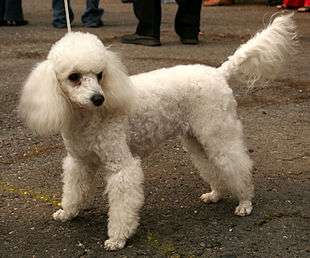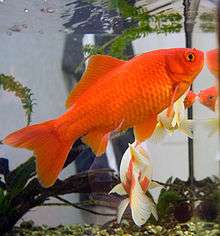pet
English
Pronunciation
- IPA(key): /pɛt/, [pʰet]
Audio (US) (file) - Rhymes: -ɛt
Etymology 1
Attested since the 1500s in the sense "indulged child" and since the 1530s in the sense "animal companion".[1][2][3] From Scots and dialectal Northern English, of unclear origin. Perhaps a back-formation of petty, pety (“little, small”), a term formerly used to describe children and animals (e.g. pet lambs).[2][3] Alternatively, perhaps a borrowing of Scottish Gaelic peata, from Old Irish petta, peta (“pet, lap-dog”), of uncertain (possibly pre-Proto-Indo-European) origin.[4] Compare peat (“pet, darling, woman”).
Noun
| Picture dictionary | |||||||
|---|---|---|---|---|---|---|---|
|
pet (plural pets)
- An animal kept as a companion.
- (by extension) Something kept as a companion, including inanimate objects. (pet rock, pet plant, etc.)
- 2015 September 15, Toby Fox, Undertale (video game), Linux, Microsoft Windows, OS X:
- Papyrus: This is my brother's pet rock. He always forgets to feed it. As usual, I have to take responsibility.
-
- One who is excessively loyal to a superior.
- Any person or animal especially cherished and indulged; a darling.
- Tatler:
- the love of cronies, pets, and favourites
- Tatler:
Translations
|
|
- The translations below need to be checked and inserted above into the appropriate translation tables, removing any numbers. Numbers do not necessarily match those in definitions. See instructions at Wiktionary:Entry layout#Translations.
Verb
pet (third-person singular simple present pets, present participle petting, simple past and past participle petted or (nonstandard) pet)
- (transitive) To stroke or fondle (an animal).
- (transitive, informal) To stroke or fondle (another person) amorously.
- (intransitive, informal) Of two or more people, to stroke and fondle one another amorously.
- (dated, transitive) To treat as a pet; to fondle; to indulge.
- His daughter was petted and spoiled.
- (archaic, intransitive) To be a pet.
- (Can we find and add a quotation of Feltham to this entry?)
- (archaic, intransitive) To be peevish; to sulk.
Translations
|
|
Derived terms
- pet cemetery
- pet name
- pet peeve
- pet project
- pet shop
- pet store
- petting
- teacher's pet
Adjective
pet (not comparable)
- Favourite; cherished.
- a pet child
- The professor seemed offended by the criticism of her pet theory.
- (Can we date this quote?) F. Harrison
- Some young lady's pet curate.
- Kept or treated as a pet.
- pet rock
Translations
|
|
|
References
- “pet” in Douglas Harper, Online Etymology Dictionary, 2001–2019.
- “pet” in Dictionary.com Unabridged, Dictionary.com, LLC, 1995–present.
- “pet” in Merriam–Webster Online Dictionary.
- Schrijver, Peter (2000), “Non-Indo-European Surviving in Ireland in the First Millennium AD”, in Ériu, volume 51, pages 195–199
Etymology 2
Clipping of petulance.
Noun
pet (plural pets)
- A fit of petulance, a sulk, arising from the impression that one has been offended or slighted.
- 1891, Mary Noailles Murfree, In the "Stranger People's" Country, Nebraska 2005, p. 105:
- There was something ludicrous, even more, unbecoming a gentleman, in leaving a friend's house in a pet, with the host's reproaches sounding in his ears, to be matched only by the bitterness of the guest's sneering retorts.
- 1891, Mary Noailles Murfree, In the "Stranger People's" Country, Nebraska 2005, p. 105:
Etymology 3
Clipping of petition.
Etymology 4
Clipping of petal.
References
- A Dictionary of North East Dialect, Bill Griffiths, 2005, Northumbria University Press, →ISBN
See also
Catalan
Chuukese
Noun
pet
- bed
- 2010, Ewe Kapasen God, United Bible Societies, →ISBN, Luke 5:24, page 110:
- Iwe upwe pwȧr ngeni kemi pwe mi wor an ewe Noun Aramas manamanen omusano tipis won fonufan. Iwe a apasa ngeni ewe mwan mi mwök, 'Upwe erenuk, kopwe uta, kopwe eki om na pet o feinno non imwom!"
- Therefore I will show you that the Son of Man has the power of forgiving sins on earth. So he said to the sick man, 'I tell you, stand, grab your bed and go to your house!"
-
Dutch
Etymology
Pronunciation
- IPA(key): /pɛt/
Audio (file) - Hyphenation: pet
- Rhymes: -ɛt
Inflection
| Inflection of pet | ||||
|---|---|---|---|---|
| uninflected | pet | |||
| inflected | pette | |||
| comparative | petter | |||
| positive | comparative | superlative | ||
| predicative/adverbial | pet | petter | het petst het petste | |
| indefinite | m./f. sing. | pette | pettere | petste |
| n. sing. | pet | petter | petste | |
| plural | pette | pettere | petste | |
| definite | pette | pettere | petste | |
| partitive | pets | petters | — | |
Derived terms
- naatje pet
French
Etymology
From Old French pet, inherited from Latin pēditum.
Pronunciation
Noun
pet m (plural pets)
Synonyms
Related terms
Further reading
- “pet” in le Trésor de la langue française informatisé (The Digitized Treasury of the French Language).
Middle French
Polish
Pronunciation
- IPA(key): /pɛt/
Audio (file)
Declension
Synonyms
- (cigarette butt): niedopałek
- (cigarette): papieros, fajek, szlug
Portuguese
Noun
pet m (plural pets)
- (Brazil, upper class slang) pet (animal kept as a companion)
- Synonyms: animal de estimação (much more common), mascote
Romansch
Serbo-Croatian
| < 4 | 5 | 6 > |
|---|---|---|
| Cardinal : pet Ordinal : peti | ||
Etymology
From Proto-Slavic *pętь, from Proto-Indo-European *pénkʷe.
Pronunciation
- IPA(key): /pêːt/
Audio (Serbia) (file)
Slovene
| < 4 | 5 | [[šest #Slovene|6 >]] |
|---|---|---|
Etymology
From Proto-Slavic *pętь, from Proto-Indo-European *pénkʷe.
Pronunciation
- IPA(key): /péːt/
- Tonal orthography: pẹ̑t
Declension
| plural | |
|---|---|
| nominative | pet |
| accusative | pet |
| genitive | petih |
| dative | petim |
| locative | petih |
| instrumental | petimi |
Westrobothnian
Noun
pet n
- bad worker who does not get anything out of his hands completely done




